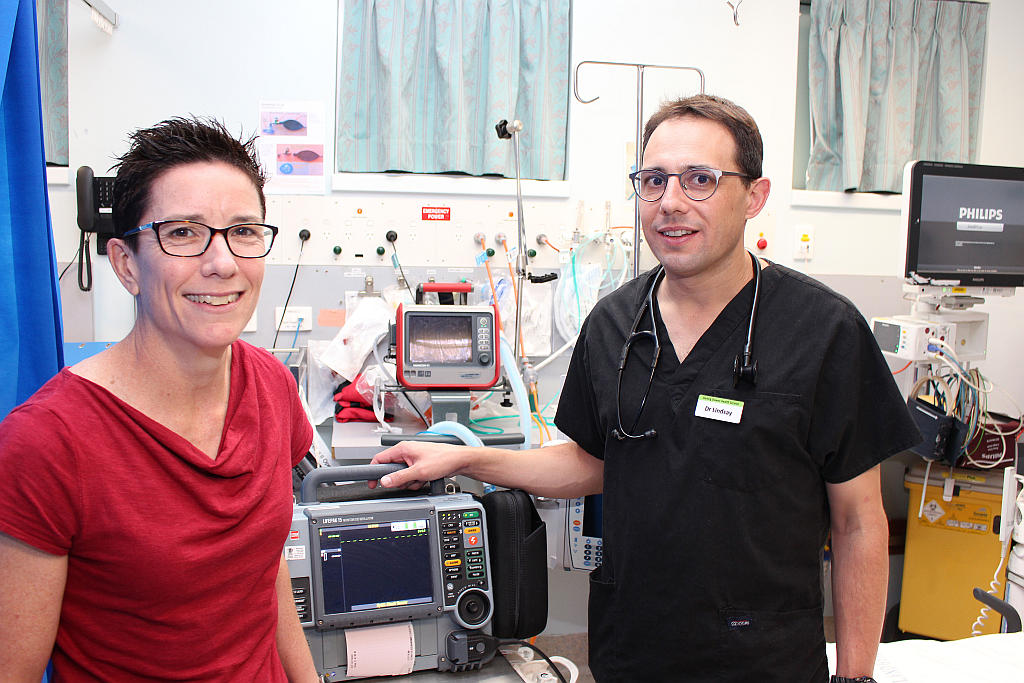
Training provided by Toowoomba Hospital emergency specialists is saving lives in rural areas.
Just weeks after completing an Emergency Medicine, Education and Training (EMET) refresher course, Dr Lindsay Haase put his skills into practice with excellent results.
“While working in the South Burnett recently we had an EMET refresher course for advanced life support
(ALS) and not very long after we had a situation where had to resuscitate a patient,†Dr Haase said.
“That patient had ventricular fibrillation, which is an erratic heartbeat, which lead to a cardiac arrest, and had to be shocked using the defibrillator four times.”
“I was very glad to have just done the EMET ALS refresher training because I was prepared and ready to use those skills when they were needed and thankfully the patient lived. EMET training is invaluable, it’s a wonderful service to rural doctors and nurses throughout Darling Downs Health, because it saves lives.â€Â
Dr Sheree Conroy, Toowoomba Hospital-based emergency medicine specialist and Darling Downs Health Director of Clinical Training, has been coordinating EMET training for the past four years.
“A successful application for funding to the Australasian College for Emergency Medicine in the latter half of 2014 allowed us to start the Emergency Medicine Education and Training Program (EMET) in February 2015,†Dr Conroy said.
“Since then we’ve travelled more than 46,000km to provide 215 EMET training session at 17 of our hospitals, with more than 2,300 attendees. “The sessions are attended by doctors and nurses at each of the sites, as well as other personnel such as local paramedics or pre-hospital staff.”
“We go to one or two rural hospitals a week with two emergency specialists from Toowoomba Hospital
Emergency Department (ED) traveling to each site. We do separate training modules covering topics including airway management; breathing and respiratory; non-invasive ventilation; cardiac; paediatric; trauma; toxicology; and behavioural emergencies.
“These are things we can encounter on any day of the week at the Toowoomba Hospital ED but which are seen less regularly in our rural facilities, and that’s why it’s so important to visit our rural hospitals and upskill and refresh our excellent rural staff on managing these less common emergencies in their own clinical setting.”
“I think one of the best things about the program is not just seeing our clinicians upskill, but also getting to know them and developing relationships right across our health service, which is very beneficial given that Toowoomba Hospital is the major referral centre for all our rural locations.â€Â
Submitted by:
Darling Downs Health Media Team